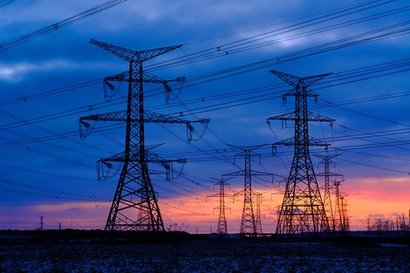
Strengthening grids is therefore essential, according to campaigning group Beyond Fossil Fuels, not only for energy security today, but for realising the full promise of a renewable-based energy system tomorrow.
“As we wait for the cause of the Iberian blackout to be determined, we are reminded of a broader truth: resilient grids and clean flexibility solutions are the foundations of a secure, clean energy future, and this event tells us that investing in them can no longer be delayed” said Juliet Phillips, energy campaigner at Beyond Fossil Fuels. “Renewables are the future, and it’s only by future-proofing our infrastructure that we can deliver a fully reliable and clean energy system for decades to come.”
The power outage also demonstrated the benefits of distributed, autonomous renewable clean energy systems. For example, the University of Almería remained open thanks to on-site solar and battery storage, while households across Spain and Portugal used electric vehicle batteries to bridge local power supply gaps.
Even in the aftermath of the event, when electricity began to flow back into the grid on Monday afternoon, the main sources of generation were renewables, proving more resilient and reliable than nuclear power, which was still down by midday on Tuesday.
When fossil fuel-based systems fail, they can take several days to restart, as in the case of the 2021 Texas power outage, when fossil gas was primarily to blame for the systemic collapse.
The broader lesson is unmistakable: energy security, affordability, and climate protection all depend on completing the transition to a renewable-based power system. This requires modernising and strengthening grids and flexibility.
“Grid system operators need to be given a climate mandate to invest and plan for the renewables-based energy system of the future” added Ms Phillips. “This requires a rapid scale up of energy storage, interconnectors and other sources of flexibility. They need to be empowered to implement these solutions, particularly as we face the prospect of more frequent extreme weather events."
In related news, the US Conservative Energy Network (CEN) responded to media reports concerning the Iberian Peninsular outage by issuing a statement and urging policymakers to focus on solutions for outdated and overstressed electricity transmission systems.
"Recent speculation that blames two solar generation sites during a period of low energy demand for the temporary power outages in Southern Europe distracts from the real issue, which is the insufficient investment in modernising transmission infrastructure" said John Szoka, CEO of the Conservative Energy Network. "As an organisation committed to advancing conservative energy solutions, we urge a fact-based discussion that supports grid reliability, security, affordability and energy resilience."
According to statements by European grid operators, including Spain's Red Electrica and Portugal's REN, the incident stemmed from high-voltage instability that caused a disconnection in the European interconnections system and not from the inherent nature of solar power. REN specifically described the event as a result of "induced atmospheric vibration" triggered by extreme temperature fluctuations, leading to synchronisation failures between national grids.
"The claim that renewables sources such as solar was the direct cause of the outage misrepresents the facts of the situation" added Mr Szoka.
Spanish energy expert Carlos Cagigal noted that the substation failure and lack of adequate redundancy, and not the presence of solar, were the key vulnerabilities exposed by the blackout. Similarly, Kristian Ruby of Eurelectric highlighted that a combination of grid disruptions and transmission weaknesses, rather than any one generation source, were necessary to cause such a system-wide event.
This event underscores a global imperative that every nation must prioritise investment in their electric transmission systems so that they are capable of supporting a diverse array of energy generation sources and are able to withstand both environmental extremes and demand surges. Building resilient, flexible grid infrastructure is essential for ensuring energy security, economic competitiveness and public safety in a rapidly changing energy landscape.
CEN said it urges conservative leaders and policymakers to support expanded investments in transmission upgrades, grid flexibility technologies, and diversified generation portfolios to avoid these disruption events in the future.
Renewable energy, including solar, plays an essential role in creating a secure and competitive electricity system, especially when integrated with storage, responsive demand systems and robust infrastructure.
"This is not about renewables versus nuclear or fossil fuels" said Mr Szoka. "This is about building a 21st-century grid that can handle a diverse mix of energy sources, withstand environmental extremes and serve consumers reliably and affordably."
For additional information:

